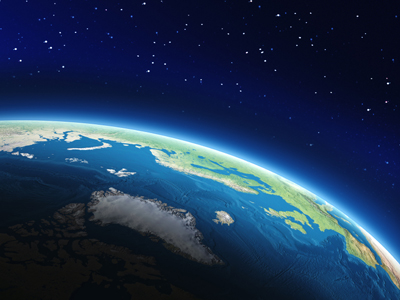
This quiz will help you to learn Spanish words which describe the structure of the Earth.
Science - The Earth’s Structure Vocabulary
This Spanish Easy Review vocabulary quiz takes a look at the Earth's structure. Okay, so you are probably thinking that you already have a science class and now this makes two. You can relax on that front because what this quiz will focus on is the Spanish vocabulary of science words. It will also complement your normal science class on learning about the Earth’s structure. As you may recall, the Earth has six layers. Those layers include the inner core, outer core, lower mantle, upper mantle, lithosphere and crust.
1 .
Which of the following best describes the Earth’s mantle?
metal líquido y sólido
metal sólido
roca líquida y sólida
roca sólida
The Earth’s mantle contains rocks and lava or liquid. It does not contain metal so the first and second answers can be eliminated. The last answer is solid rock so it is not complete. The third answer, however, reads liquid and solid rock. Note the order of the words. It’s literal translation is rock [of] liquid and solid. This is because in Spanish the adjectives often are placed after the noun which, in this case is rock.
2 .
The lithosphere layer contains part of ____.
la corteza y el manto superior
el manto exterior
la corteza
el núcleo y el plato
The lithosphere layer is located just below the Earth’s crust. It contains part of the crust and connects the crust to the upper mantle. This is translated in Spanish as la corteza y el manto superior (the crust and upper mantle). Again, notice that the adjective upper is placed after the noun mantle.
3 .
This layer of the Earth creates the Earth’s magnetic field.
manto exterior
núcleo
corteza
manto interior
Iron is an important metal needed to create a magnetic field and the Earth’s core is made up mostly of iron. Therefore, it is the core that creates the Earth’s magnetic field i.e. núcleo in Spanish.
4 .
Which of the Earth’s layers is the thinnest layer?
litósfera
manto exterior
manto interior
corteza
The top layer of the Earth is the thinnest. The top layer is also known as the Earth’s crust or corteza in Spanish.
5 .
What is the thick, hot, rocky layer around the outer core called?
manto
litósfera
magma
atmósfera
The layer of the Earth that contains thick, hot rock around the outer core is called the mantle or 'manto' in Spanish.
6 .
Earth in Spanish is ____.
terremoto
pesado
plato
tierra
The Spanish word for Earth is tierra.
7 .
When the Earth’s crust shakes, it means that these are moving.
estructuras
platos
pesados
terremotos
When the Earth’s crust shakes, it means that the Earth’s plates are moving. The Spanish word for plates is platos.
8 .
When the Earth’s plates move it causes this to happen.
oxígeno
magma
terremoto
atmósfera
When the Earth’s plates move it causes an earthquake to happen. The Spanish word for earthquake is terremoto.
9 .
The Earth’s atmosphere is a layer of ____ that surrounds the Earth.
rocas
líquidos
oxígenes
gases
The Earth’s atmosphere is a layer of gases that surrounds the Earth. Gases in Spanish is gases. It is the same so this one is pretty easy to remember.
10 .
This quiz is about Earth's ____.
pesado
estructura
oxígeno
tierra
This quiz is about Earth’s structure. The Spanish word for structure is estructura.
**Unlimited Quizzes Await You! 🚀**
Hey there, quiz champ! 🌟 You've already tackled today's free questions.
Ready for more?
Ready for more?
🔓 Unlock UNLIMITED Quizzes and challenge yourself every day. But that's
not all...
not all...
🔥 As a Subscriber you can join our thrilling "Daily Streak" against other
quizzers. Try to win a coveted spot on our Hall of Fame Page.
quizzers. Try to win a coveted spot on our Hall of Fame Page.
Don't miss out! Join us now and keep the fun rolling. 🎉
**Unlimited Quizzes Await You! 🚀**
Hey there, quiz champ! 🌟 You've already tackled today's free questions. Ready for more?
🔓 Unlock UNLIMITED Quizzes and challenge yourself every day. But that's not all...
🔥 As a Subscriber you can join our thrilling "Daily Streak" against other quizzers. Try to win a coveted spot on our Hall of Fame Page.
Don't miss out! Join us now and keep the fun rolling. 🎉







